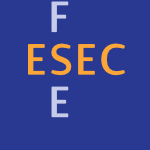30 papers:
 CHI-2015-ZhangAK #how #question #what #why
CHI-2015-ZhangAK #how #question #what #why- Mailing Lists: Why Are They Still Here, What’s Wrong With Them, and How Can We Fix Them? (AXZ, MSA, DRK), pp. 4009–4018.
 PPDP-2015-CaballeroGS #constraints #datalog #debugging #source code
PPDP-2015-CaballeroGS #constraints #datalog #debugging #source code- Debugging of wrong and missing answers for datalog programs with constraint handling rules (RC, YGR, FSP), pp. 55–66.
 ICSE-v1-2015-PastoreM #detection #named
ICSE-v1-2015-PastoreM #detection #named- ZoomIn: Discovering Failures by Detecting Wrong Assertions (FP, LM), pp. 66–76.
 PODS-2014-Libkin #how #semistructured data #what
PODS-2014-Libkin #how #semistructured data #what- Incomplete data: what went wrong, and how to fix it (LL), pp. 1–13.
 SIGMOD-2014-AgarwalMKTJMMS #approximate #performance #query #reliability
SIGMOD-2014-AgarwalMKTJMMS #approximate #performance #query #reliability- Knowing when you’re wrong: building fast and reliable approximate query processing systems (SA, HM, AK, AT, MIJ, SM, BM, IS), pp. 481–492.
 CIKM-2014-ProkofyevMGDC #fault #ranking
CIKM-2014-ProkofyevMGDC #fault #ranking- Correct Me If I’m Wrong: Fixing Grammatical Errors by Preposition Ranking (RP, RM, MG, GD, PCM), pp. 331–340.
 ICPR-2014-CabreraMS #bias
ICPR-2014-CabreraMS #bias- Systematic Labeling Bias: De-biasing Where Everyone is Wrong (GFC, CJM, JS), pp. 4417–4422.
 Onward-2013-RossoJ #analysis #concept #design #git #what
Onward-2013-RossoJ #analysis #concept #design #git #what- What’s wrong with git?: a conceptual design analysis (SPDR, DJ), pp. 37–52.
 FLOPS-2012-CaballeroGS #debugging #declarative #sql
FLOPS-2012-CaballeroGS #debugging #declarative #sql- Declarative Debugging of Wrong and Missing Answers for SQL Views (RC, YGR, FSP), pp. 73–87.
 ESEC-FSE-2011-MirghasemiBP #execution #named
ESEC-FSE-2011-MirghasemiBP #execution #named- Querypoint: moving backwards on wrong values in the buggy execution (SM, JJB, CP), pp. 436–439.
 OOPSLA-2010-ShiPYLZCZ #concurrent #debugging #detection #invariant
OOPSLA-2010-ShiPYLZCZ #concurrent #debugging #detection #invariant- Do I use the wrong definition?: DeFuse: definition-use invariants for detecting concurrency and sequential bugs (YS, SP, ZY, SL, YZ, WC, WZ), pp. 160–174.
 CHI-2009-GaverBKBJ #design #how #what
CHI-2009-GaverBKBJ #design #how #what- Anatomy of a failure: how we knew when our design went wrong, and what we learned from it (WWG, JB, TK, AB, NJ), pp. 2213–2222.
 KDD-2009-Hand #data mining #mining #modelling #tool support
KDD-2009-Hand #data mining #mining #modelling #tool support- Mismatched models, wrong results, and dreadful decisions: on choosing appropriate data mining tools (DJH), pp. 1–2.
 ASPLOS-2009-MytkowiczDHS #exclamation
ASPLOS-2009-MytkowiczDHS #exclamation- Producing wrong data without doing anything obviously wrong! (TM, AD, MH, PFS), pp. 265–276.
 VLDB-2008-BlottW #question #similarity #what
VLDB-2008-BlottW #question #similarity #what- What’s wrong with high-dimensional similarity search? (SB, RW), p. 3.
 FASE-2008-BowlesM
FASE-2008-BowlesM- When Things Go Wrong: Interrupting Conversations (JKFB, SM), pp. 131–145.
 CSCW-2008-DiamantFL #performance
CSCW-2008-DiamantFL #performance- Where did we turn wrong?: unpacking the effect of culture and technology on attributions of team performance (EID, SRF, FlL), pp. 383–392.
 ECIR-2008-Mizzaro #evaluation #information retrieval #question
ECIR-2008-Mizzaro #evaluation #information retrieval #question- The Good, the Bad, the Difficult, and the Easy: Something Wrong with Information Retrieval Evaluation? (SM), pp. 642–646.
 HPCA-2008-LeeKMP #predict #using
HPCA-2008-LeeKMP #predict #using- Performance-aware speculation control using wrong path usefulness prediction (CJL, HK, OM, YNP), pp. 39–49.
 DATE-2007-Naumann #design #evolution #question
DATE-2007-Naumann #design #evolution #question- Keynote address: Was Darwin wrong? Has design evolution stopped at the RTL level... or will software and custom processors (or system-level design) extend Moore’s law? (AN), p. 2.
 KR-2006-Rector #information management #representation
KR-2006-Rector #information management #representation- Users Are Always Right ... Even When They Are Wrong: Making Knowledge Representation Useful and Usable (ALR), p. 4.
 ICLP-2006-CaballeroRV #constraints #declarative #functional #logic programming
ICLP-2006-CaballeroRV #constraints #declarative #functional #logic programming- Declarative Diagnosis of Wrong Answers in Constraint Functional-Logic Programming (RC, MRA, RdVV), pp. 421–422.
 DAC-2005-NassifZMMPV #exclamation #what
DAC-2005-NassifZMMPV #exclamation #what- The Titanic: what went wrong! (SRN, PSZ, CM, MM, SDP, WV), pp. 349–350.
 ICFP-2004-Graham #debugging #programming
ICFP-2004-Graham #debugging #programming- Don’t make the wrong mistakes: programming as debugging (PG), p. 66.
 ICALP-2002-Doerr #game studies
ICALP-2002-Doerr #game studies- Antirandomizing the Wrong Game (BD), pp. 876–887.
 FLOPS-2001-DeransartS #logic programming #source code
FLOPS-2001-DeransartS #logic programming #source code- Well-Typed Logic Programs Are not Wrong (PD, JGS), pp. 280–295.
 CHI-2000-EspinosaCRKSL #tool support #why
CHI-2000-EspinosaCRKSL #tool support #why- Coming to the wrong decision quickly: why awareness tools must be matched with appropriate tasks (JAE, JJC, LRG, REK, WLS, GL), pp. 392–399.
 ESEC-1991-Feather #requirements
ESEC-1991-Feather #requirements- Requirements Engineering — Getting Right from Wrong (MSF), pp. 485–488.
 HT-1989-HalaszMMPS #named #what
HT-1989-HalaszMMPS #named #what- Confessions — What’s Wrong with Our Systems (FGH, DLM, NKM, AP, BS), p. 399.
 DAC-1980-Armstrong #what
DAC-1980-Armstrong #what- A CAD user’s perspective what gets done right wrong and not at all (Position Paper) (RAA), p. 517.
 CHI-2015-ZhangAK #how #question #what #why
CHI-2015-ZhangAK #how #question #what #why PPDP-2015-CaballeroGS #constraints #datalog #debugging #source code
PPDP-2015-CaballeroGS #constraints #datalog #debugging #source code ICSE-v1-2015-PastoreM #detection #named
ICSE-v1-2015-PastoreM #detection #named PODS-2014-Libkin #how #semistructured data #what
PODS-2014-Libkin #how #semistructured data #what SIGMOD-2014-AgarwalMKTJMMS #approximate #performance #query #reliability
SIGMOD-2014-AgarwalMKTJMMS #approximate #performance #query #reliability CIKM-2014-ProkofyevMGDC #fault #ranking
CIKM-2014-ProkofyevMGDC #fault #ranking ICPR-2014-CabreraMS #bias
ICPR-2014-CabreraMS #bias Onward-2013-RossoJ #analysis #concept #design #git #what
Onward-2013-RossoJ #analysis #concept #design #git #what FLOPS-2012-CaballeroGS #debugging #declarative #sql
FLOPS-2012-CaballeroGS #debugging #declarative #sql ESEC-FSE-2011-MirghasemiBP #execution #named
ESEC-FSE-2011-MirghasemiBP #execution #named OOPSLA-2010-ShiPYLZCZ #concurrent #debugging #detection #invariant
OOPSLA-2010-ShiPYLZCZ #concurrent #debugging #detection #invariant CHI-2009-GaverBKBJ #design #how #what
CHI-2009-GaverBKBJ #design #how #what KDD-2009-Hand #data mining #mining #modelling #tool support
KDD-2009-Hand #data mining #mining #modelling #tool support ASPLOS-2009-MytkowiczDHS #exclamation
ASPLOS-2009-MytkowiczDHS #exclamation VLDB-2008-BlottW #question #similarity #what
VLDB-2008-BlottW #question #similarity #what FASE-2008-BowlesM
FASE-2008-BowlesM CSCW-2008-DiamantFL #performance
CSCW-2008-DiamantFL #performance ECIR-2008-Mizzaro #evaluation #information retrieval #question
ECIR-2008-Mizzaro #evaluation #information retrieval #question HPCA-2008-LeeKMP #predict #using
HPCA-2008-LeeKMP #predict #using DATE-2007-Naumann #design #evolution #question
DATE-2007-Naumann #design #evolution #question KR-2006-Rector #information management #representation
KR-2006-Rector #information management #representation ICLP-2006-CaballeroRV #constraints #declarative #functional #logic programming
ICLP-2006-CaballeroRV #constraints #declarative #functional #logic programming DAC-2005-NassifZMMPV #exclamation #what
DAC-2005-NassifZMMPV #exclamation #what ICFP-2004-Graham #debugging #programming
ICFP-2004-Graham #debugging #programming ICALP-2002-Doerr #game studies
ICALP-2002-Doerr #game studies FLOPS-2001-DeransartS #logic programming #source code
FLOPS-2001-DeransartS #logic programming #source code CHI-2000-EspinosaCRKSL #tool support #why
CHI-2000-EspinosaCRKSL #tool support #why ESEC-1991-Feather #requirements
ESEC-1991-Feather #requirements HT-1989-HalaszMMPS #named #what
HT-1989-HalaszMMPS #named #what DAC-1980-Armstrong #what
DAC-1980-Armstrong #what









